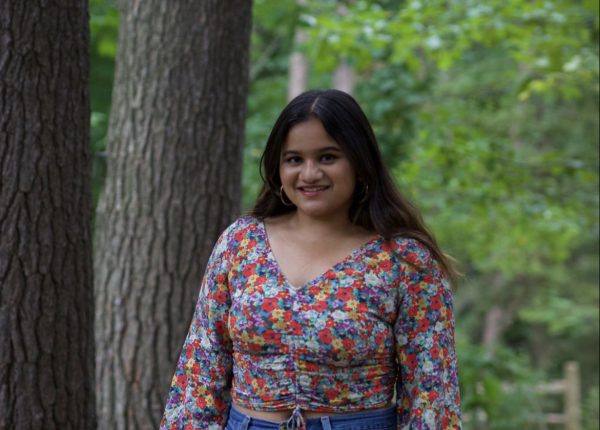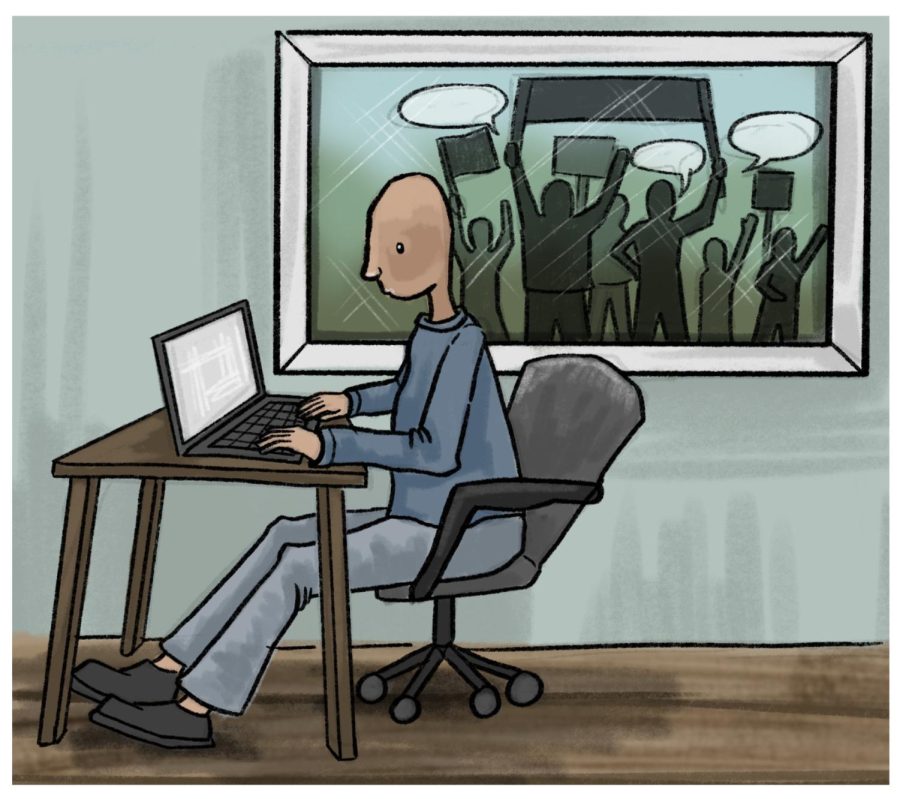Why The Revolution Cannot Be Televised
Excerpted from “The Revolution Will Not Be Televised” by Gill Heron-Scott.
“You will not be able to stay home, brother.
You will not be able to plug in, turn on and cop out.
You will not be able to lose yourself on skag
and Skip out for beer during commercials,
Because the revolution will not be televised.”
Over the horns blaring Kendrick Lamar rapped “I’ve been duckin’ the overnight activists” in his single “Family Ties” featuring Baby Keem. Like a regal announcement made from a king preceded by his trumpets, his proclamation, though only a sentence, should be examined and proclaimed through all the land.
Lamar was scrutinized for not speaking out on social media during the height of the Black Lives Matter movement in the summer of 2020.
After the murder of George Floyd in 2020, the internet saw an influx of social media activism due to the pandemic and social distancing mandates.
“You will not be able to stay home, brother.”
Lamar was seen on the streets of Compton, California, his home town, during the Black Lives Matter protests that took place in 2020. He wore a ski mask and kept his profile low so as to not take away from what was trying to be said and accomplished.
According to the New York Times, “Black Lives Matter protests peaked on June 6, when half a million people turned out in nearly 550 places across the United States.” Though the Black Lives Matter (BLM) protests of 2020 hit historic numbers, many people were not able to attend due to COVID-19.
Many turned to social media as their only option to make a difference. The pandemic led much of the population to be absorbed into a virtual world. Reposting infographics and spreading information made people feel like they were doing something. A way to absolve guilt, to feel like change was being made.
The difference between feeling like you’re creating change and actually creating it is monumental.
The access to convenient infographics in the depths of quarantine created a wave of performative activism. We’ve seen this wave rise and fall since 2020. It follows trends pertaining to the combating of institutional racism or different global issues. The impact of these infographics has led to education, but also misinformation at times. Ultimately it has led to false promises and continues to do so.
Though the intentions of infographic creators might have been benevolent, they’re not founded on genuine principles of change. These practices are a direct result of being in the era of the internet. As our brains are overloaded with any and every issue going on in the world—all at the tips of our fingers—the only way to handle or care for everything is if it’s at a surface level.
This lessens the quality of said activism.
These issues deserve attention, but also action. Reposting infographics doesn’t give these movements that. Infographics and social media activism increases awareness which is a crucial first stepping stone in order to create change.
It’s led us to take the first crucial step of education and then we stop. Thinking we’ve done enough.
“You will not be able to plug in, turn on and cop out.”
Lamar termed this facade “the overnight activists.”
After the murder of George Floyd there were two types of reactions. Those who feared it, and those who had never seen this cruelty before. The blatant murder was so jarringly brutal and outright that it gave no room for excuses or justifications rooted in white supremacy. It made non-Black Americans, such as myself, aware of an evil they did not have to fear.
Lamar has arguably always incorporated his identity and experiences in his art. He’s continuously spoken about the marginalization he faces as a Black man in America. Not because he chose to, because he had to.
He made this very clear in songs like “The Blacker the Berry” off of his third studio album “Pimp to Butterfly.” In this song he pours out his frustration and hate he’s faced. He says “You have my people, your plan is to terminate my culture.” He goes on to say “The plot is bigger than me, it’s generational hatred.” This song is one of his most confrontational and outright honest.
His discography is a clear indication that he’s always been plugged in and not afraid to broadcast it.
Over the rise of social media we’ve seen two types of performative activists. The first type is genuinely trying to change and the convenience of social media reposting makes it convenient enough to feel like something is being done. Though this might have good intentions it’s mostly done to appease one’s own conscience. The social pressure to not wanting to feel ostracized by fellow peers also contributes to this. Social media has established a binary of labeling people as good or bad depending on unauthentic virtual solidarity.
It’s almost as if we’re starting to value this virtual solidarity more than genuine allyship.
But the second type of performative activism has more malicious undertones that have emerged from corporations. One example of this act is referred to as rainbow-washing. One definition according to Champlin & Li from Georgia Southern University is, “‘Rainbow-washing’ is the act of companies implementing different campaigns and brand changes to appeal to the LGBTQ+ community with little to no investment in the community itself.”
Rainbow washing is common along with other types of performative activism issued by corporations. Green washing is another type where companies will market their products as environmentally friendly when really they have harmful effects.
These types of performances are extremely harmful and are done only to market the company as one of good morals when the only thing that it cares about is reputation and profitability.
“You will not be able to lose yourself on skag and Skip out for beer during commercials,”
On June 2nd, 2020 there was a trend going around on instagram and other social media platforms called “#BlackoutTuesday.” This is when companies, celebrities and regular people would post a black square in order to show virtual solidarity with the Black Lives Matter movement and protesting the murder of George Floyd, Ahmaud Arbery and Breonna Taylor.
Kendrick Lamar did not participate in this trend.
The posts flooded the hashtag #BlackLivesMatter with photos of this black square instead of resources about the actual movement.
The point is: change cannot be solely produced via the internet, infographics or only awareness. Social media and the internet have been helpful tools in organizing protests and educating people, but it cannot stop there.
Because education without action is incomplete.
“Because the revolution will not be televised.”
“Since its release in 2015 on To Pimp a Butterfly, “Alright” has been widely accepted as one of this generation’s most important protest anthems,” said Jessica McKinney, a writer for “Complex.” “It’s a symbol of hope. It’s difficult to pinpoint the exact moment the song was first used in a protest setting, but many trace it back to July 2015, as news of Sandra Bland’s death while in police custody spread, and protests ensued.”
“Alright” was played at the Million Man March, BLM conference at Cleveland, Trump protest rallies and countless BLM protests during 2020. It’s deemed by some as one of the defining songs of protest of this generation.
The lyrics read off from the pre-chorus: (clean version)
“Wouldn’t you know. We been hurt, been down before. When our pride was low lookin’ at the world like, “Where do we go?” And we hate po-po Wanna kill us dead in the street fo sho’ I’m at the preacher’s door My knees gettin’ weak, and my gun might blow. But we gon’ be alright”
After creating this song Lamar told NPR the following: “Four hundred years ago, as slaves, we prayed and sung joyful songs to keep our heads level-headed with what was going on,” Lamar said. “Four hundred years later, we still need that music to heal. And I think that ‘Alright’ is definitely one of those records that makes you feel good no matter what the times are.”
Lamar’s words fueled the BLM protests nationwide. Even without his presence, his words rang throughout the country.
Creating a change can be manifested into a multitude of different processes. Education is the first step to that process, but if stopped there is potential energy buzzing and waiting to do something real and good.
Though it can be intimidating and out of your comfort zone to attend a protest, donate to a cause, have a difficult conversation or volunteer your time to a grassroots organization, in the end, you’re pushing the needle closer to a better world.
A world in which a revolution will be so transformative that it could not be contained to a screen but only felt in the streets.










